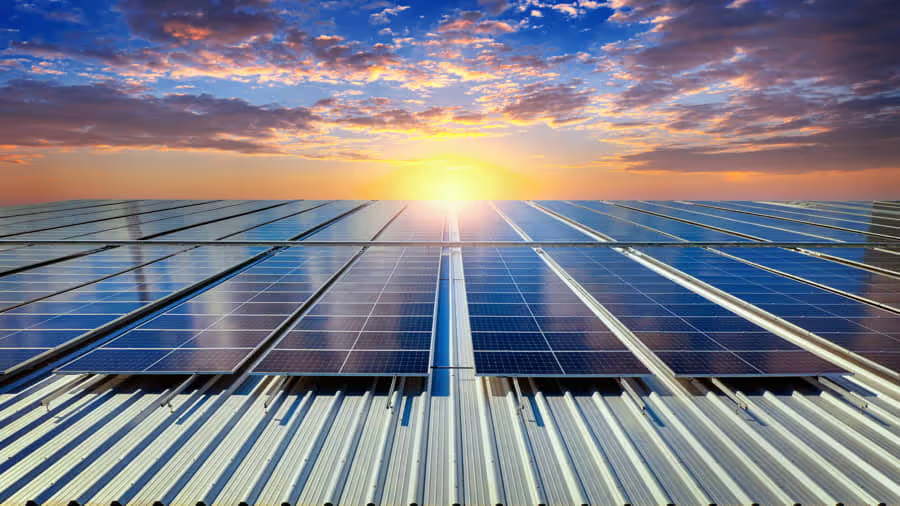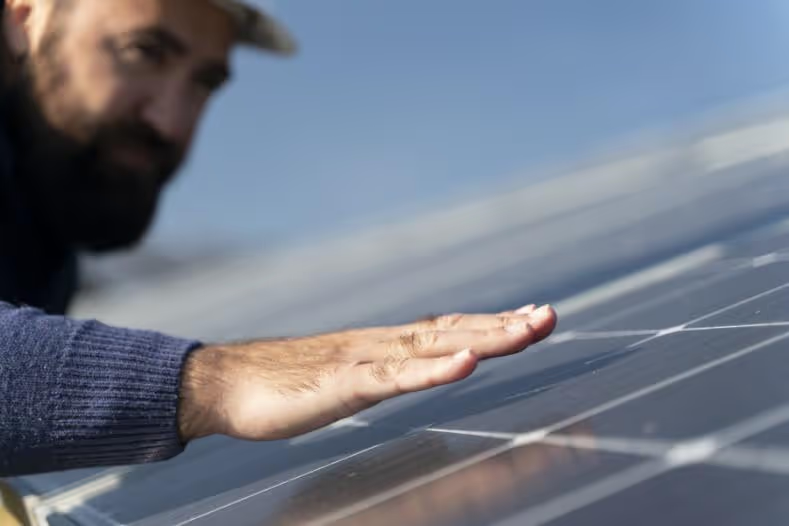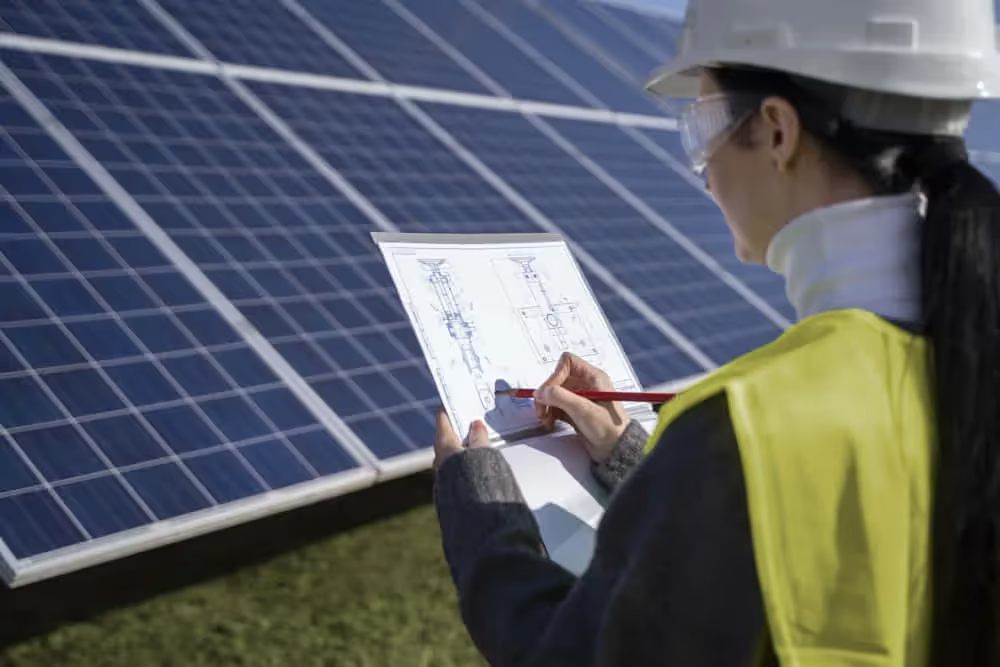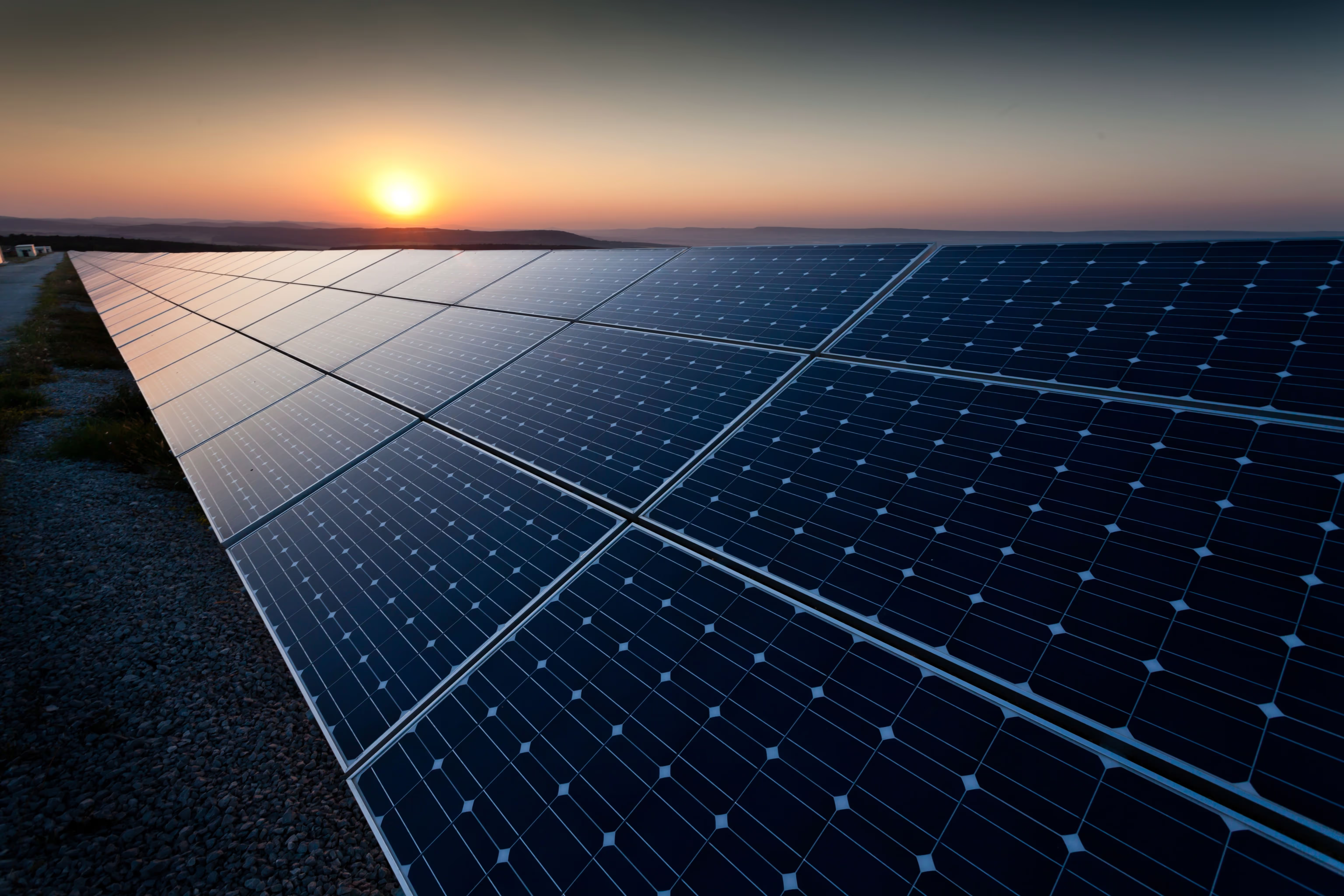¿Qué tan eficientes son los paneles solares? Todo lo que necesitas saber

Solar panels are often hailed as one of the most energy-efficient sources of renewable power, but how efficient are they really? While the average efficiency of solar panels typically ranges from 15% to 20%, factors like panel type, sunlight exposure, and weather conditions can significantly impact their performance.
As technology improves, newer, higher-efficiency models are becoming available, offering more power with fewer panels. In this guide, we’ll dive into the key factors that influence solar panel efficiency and share tips on how to maximize your system’s energy output for the best possible results.
Are solar panels energy efficent?
Yes, solar panels are energy-efficient devices, but their effectiveness can vary depending on several factors. Solar energy harnesses the power of the sun to generate electricity, and while panels are generally energy-efficient, the efficiency rate is often determined by the type of panel used and how well it’s maintained. On average, solar panels convert around 15-20% of sunlight into usable electricity, which may seem low, but it’s still much higher than many other renewable energy sources.
With the advancement of solar panel technology, more efficient models are hitting the market, offering higher energy output with fewer panels needed for the same amount of power. However, efficiency can also be influenced by external conditions like sunlight exposure and weather. Thus, while solar panels are an energy-efficient solution, their performance is maximized when installed properly and maintained regularly.
What is the average efficiency of solar panels?
The average efficiency of solar panels typically ranges from 15% to 20%, but this can vary based on the panel type, technology, and brand. This means that 15-20% of the sunlight that hits the panel is converted into usable electricity, while the rest is reflected or absorbed as heat.
High-efficiency panels, such as those using monocrystalline silicon, can achieve up to 22% efficiency, making them the most efficient option on the market. On the other hand, polycrystalline panels tend to have a slightly lower efficiency, around 15-17%. As solar technology improves, the efficiency rates are steadily rising, meaning that in the future, we can expect even greater performance with fewer panels required to generate the same amount of energy.
What affects the efficiency of solar panels?
Several factors impact the efficiency of solar panels, and understanding them can help you optimize the performance of your system.
Panel type and technology
The type of solar panel you choose plays a significant role in efficiency. Monocrystalline panels are known for their high efficiency due to the quality of silicon used, while polycrystalline panels are generally more affordable but less efficient. Additionally, thin-film solar panels, while flexible and lightweight, typically offer lower efficiency compared to silicon-based models.
Sunlight exposure & angle
The amount of sunlight exposure your panels receive is directly linked to their efficiency. Panels positioned at an optimal angle (usually based on your geographic location) and in direct sunlight throughout the day will generate more energy. Panels that are shaded or obstructed, even for part of the day, will be less effective.

Temperature & weather conditions
Solar panels work best in cooler temperatures. Extreme heat can actually reduce their efficiency, as it increases resistance within the panel. Therefore, mild temperatures and clear skies are ideal for maximizing solar panel output. Cloud cover and weather conditions can also have a significant impact on the amount of sunlight that reaches the panels.
Dust, dirt, and maintenance
Over time, dirt and debris can accumulate on the surface of solar panels, blocking sunlight and reducing their efficiency. Regular maintenance and cleaning of panels help maintain optimal performance. Even small amounts of dirt can cause a significant decrease in energy output, so ensuring your panels are kept clean is essential for their longevity and efficiency.
How to improve solar panel efficiency
Improving the efficiency of your solar panels is crucial to maximizing their energy output and ensuring you get the most value from your investment. Here are some practical ways to enhance performance:
- Optimal panel placement
Para mejorar la eficiencia, asegúrese de que sus paneles solares estén colocados en un lugar que reciba la máxima cantidad de luz solar durante el día. Esto significa colocarlos a la derecha ángulo y asegurarse de que no estén a la sombra de árboles, edificios u otros obstáculos. El ángulo ideal puede variar según su ubicación, pero un instalador profesional puede ayudarlo a determinar la mejor configuración para su hogar.
- Limpieza y mantenimiento regulares
Como se mencionó anteriormente, suciedad, polvo y escombros puede reducir la eficiencia de los paneles solares al bloquear la luz solar. La limpieza regular puede garantizar que sus paneles funcionen con la máxima eficiencia. Según tu ubicación, es posible que tengas que limpiar los paneles con más frecuencia, especialmente si vives en una zona con mucho polvo o polen.
- Actualice a paneles de mayor eficiencia
Si su sistema actual tiene un rendimiento inferior, actualice a paneles solares más eficientes es una forma eficaz de aumentar la producción de energía. Tecnologías modernas, como los paneles bifaciales (que capturan la luz solar desde ambos lados) o Tecnología PERC, puede aumentar significativamente los niveles de eficiencia. Invertir en paneles de mayor calidad puede marcar una diferencia sustancial en el rendimiento a largo plazo.
- Invierte en un rastreador solar
Rastreadores solares son dispositivos que ajustan automáticamente la posición de los paneles a lo largo del día para seguir el sol. Al mantener los paneles orientados hacia el sol en el ángulo óptimo, pueden aumentar significativamente la producción de energía, especialmente en áreas con luz solar irregular.
- Considera el almacenamiento de la batería
Si generas más electricidad de la que puedes usar durante el día, baterías solares puede almacenar el exceso de energía para usarlo por la noche o durante los períodos nublados. Esto no solo le ayuda a aprovechar al máximo su sistema de paneles solares, sino que también mejora la eficiencia general al reducir el desperdicio de energía.
¿Vale la pena pagar más por paneles de alta eficiencia?
Los paneles solares de alta eficiencia suelen tener un costo inicial más alto, pero pueden proporcionar una mayor producción de energía desde la misma cantidad de espacio. Si el área de su techo es limitada o si vive en un lugar con menos luz solar, puede valer la pena invertir en paneles más eficientes, ya que generan más energía y ayudan a satisfacer sus necesidades energéticas.
Si bien el costo inicial es más alto, los ahorros a largo plazo en sus facturas de electricidad pueden compensar la inversión con el tiempo. Además, los paneles de alta eficiencia pueden aumentar el valor de su propiedad, lo que los convierte en una opción inteligente para los propietarios que buscan maximizar tanto la producción de energía como el valor de la propiedad. En última instancia, la decisión depende de sus necesidades energéticas específicas y de su presupuesto.




